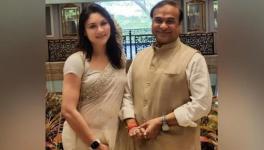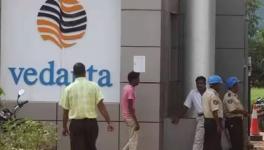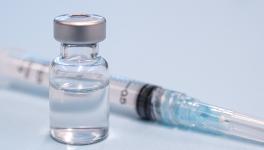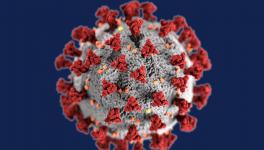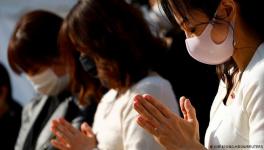COVID-19: Flip-Flop in Supreme Court’s Orders Undermine its Credibility
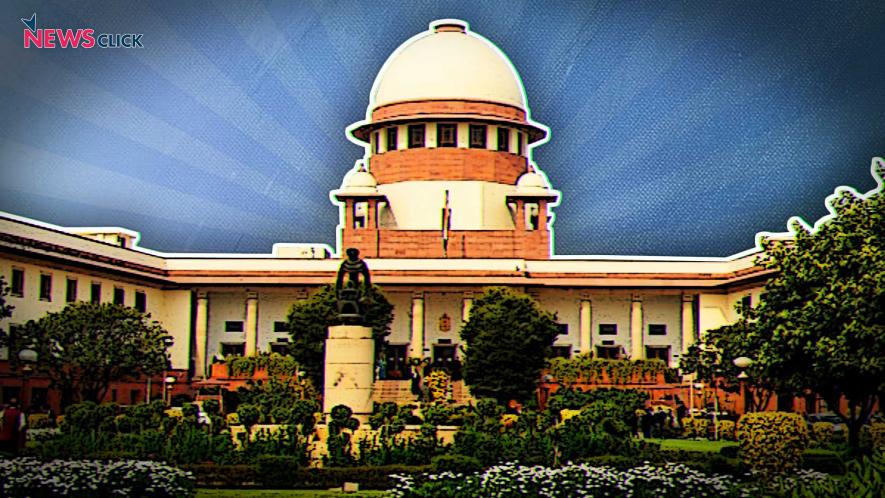
On April 8, 2020, the Supreme Court passed an order directing that: “The tests relating to COVID-19 …. private Laboratories shall be free of cost.” The order came to be passed in a public interest writ petition (PIL). The PIL, among other things, challenged the ICMR advisory dated 17.03.2020 stipulating the costs of a COVID-19 test at Rs. 4,500. After noting that COVID-19 cases were increasing in India, the Court found that there was “prima facie substance in the submission of petitioner that at this time of national calamity permitting private Labs to charge Rs.4500 for screening and confirmation test of COVID-19 may not be within means of a large part of population of this country and no person be deprived to undergo the COVID-19 test due to non- payment of capped amount of Rs.4500….”
It further noted: “The private Hospitals including Laboratories have an important role to play in containing the scale of pandemic by extending philanthropic services in the hour of national crisis. We thus are satisfied that the petitioner has made out a case for issuing a direction to the respondents to issue necessary direction to accredited private Labs to conduct free of cost COVID-19 test.”
Accordingly, it directed that: “The tests relating to COVID-19 whether in approved Government Laboratories or approved private Laboratories shall be free of cost.”
The rationale behind the ICMR capping the price at Rs. 4,500 was not brought to the notice of the Court. The ICMR Guidelines dated March 20, 2020 stated: “The National Task Force recommends that the maximum cost for testing sample should not exceed Rs. 4,500. This may include Rs. 1,500 as a screening test for suspect cases, and additional for confirmation test.” Pertinently the ICMR added, “However, ICMR encourages free or subsidized testing in this hour a National public health emergency.”
Thus. the ICMR stated that only if a screening test shows positive and a confirmatory test has to be done, then the total price should not exceed Rs. 4,500. However, the parties seemed to represent that the price was fixed at Rs. 4,500. Moreover, it urged the private sector to do its bit for the national cause.
Pertinently, the ICMR strategy in testing, as is evident from the advisory on March 20 and confirmed by the advisory on April 9, 2020, lays down that testing should be done in the following cases:
-
“All symptomatic individuals who have undertaken international travel in the last 14 days
-
All symptomatic contacts of laboratory confirmed cases
-
All symptomatic health care workers
-
All patients with Severe Acute Respiratory Illness (fever AND cough and/or shortness of breath)
-
Asymptomatic direct and high-risk contacts of a confirmed case should be tested once between day 5 and day 14 of coming in his/her contact.”
Thus, it is the ICMR’s own remit that the above categories of persons must be tested for COVID-19. In that sense, the test is mandatory and there is no question of such persons ‘choosing’ whether or not to go for a test. The purpose is to prevent the spread of COVID-19 in the community. COVID-19 testing is then a public health measure employed to identify and contain the infection and not a diagnosis of an individual in private interest. If that is the case, then can the person seeking to be tested be asked to shell out Rs. 4,500 to a private a lab for the test? Suppose the person refuses! Can she be forced to undergo the test and to fork out money for the same?! Obviously not.
One could also assume that voluntary testing has to be encouraged. This has found favour with those who say that in the COVID-19 era one would have to produce a COVID-19 free certificate to carry out one’s daily routine. In that case, there is all the more reason to examine the basis of the price of Rs. 4,500, especially when others, like Prof. Partho Sarothi Ray, who had looked at the costs, came to a figure of Rs. 700.
Surprisingly, (or perhaps not so surprisingly) all this was not brought to the notice of the court. Before the ink dried on the order of April 8, private labs saw the ground under their feet crumbling and got in the act. Within no time, news channels were humming about the completely unsustainable order by the Supreme Court when the “ICMR had itself fixed the price at Rs. 4,500.” Of course, none of the anchors of the channels bothered to verify the ICMR advisories. They played along with the private sector band, singing the tune of ‘how can the private labs manage.’ Of course, nobody talked about private labs doing their bit in national interest or the governments’ responsibility to ensure widespread testing as a prophylactic against transmission of COVID-19.
Lo and behold, within a few days, applications were filed in the Supreme Court questioning the order of April 8.
It is easy to understand that private labs were crying over the cost being reduced to zero, thus the court noted their lament: “Shri Rohatgi submits that the ICMR has fixed Rs.4,500/- on a moderate side to cover the expenses of Labs for conducting the COVID-19 test.” It also noted: “He submits that in the event, the Labs are not to charge any fee for the tests, it will be impossible for them to carry on the test in due to financial constraint and other relevant factors.”
However, it is difficult to understand the Government’s stand, which the Court noted as, “Shri Tushar Mehta, learned Solicitor General of India, referring to the affidavit filed on behalf of the ICMR dated 12.04.2020, submits that… As per the protocol of the ICMR, any affected person on recommendation of a Medical Practitioner can avail the benefit of free test available in Government hospitals and Government Labs. Insofar as the test by private Labs are concerned, the ICMR has fixed the amount of Rs.4,500/- after considering all relevant factors.”
The Court noted the submission of the petitioner in person that, “there are large sections of society who at present are unable to afford the payment of Rs.4,500/- for COVID-19 test… In the event one person in a family is tested positive, the entire family requires testing. He submits that Government hospitals are over-crowded, hence, such persons may be permitted testing of COVID-19 in private labs free of cost.”
Finally, the Court passed an order which said:
-
Those that are covered by the Ayushman Bharat scheme and any other category of economically weaker sections that may notified by the Government would be entitled to free testing.
-
The Government may consider any other economically weaker sections who would be eligible for free testing.
-
Private labs would be entitled to charge a fee for the costs of the tests.
-
Government may devise a scheme to reimburse private labs if they conduct free tests.
Of course, none of the parties brought the ICMR advisories or the rationale of testing to the notice of the court. Nor were the merits of the fixing of the price of the “test” at Rs. 4,500 brought to the notice of the court. Thus the court did not have all the facts before it or the public health rationale behind the testing advisories of the ICMR or on the determining of the price at Rs. 4,500.
The advisories do not contemplate voluntary testing. It is only on the indications in the advisories that the tests are mandated. They are not voluntary in nature. If that be the case, tests cannot be done on the basis of whether the person proposed to be tested is paying for the test.
Even if assuming that the idea was to encourage voluntary testing, nobody brought to the notice of the court that the price could be less. Measures to reduce the cost or subsidise the test were not explored. The burden was simply shifted to the individual ‘consumer’, without acknowledging the public interest in performing COVID testing or the State’s responsibility to carry out large-scale testing as a preventive strategy.
Assuming that private labs can charge a costs and a reasonable profit above it, and assuming that universal testing is what needs to be followed in the pandemic scenario we are in, it is important to understand that the reason why private labs are being accredited is to augment the capacity of testing to combat the pandemic in accordance with the Government programme. In that case the Government can fund testing by the private labs. The court has done this only in case of the specified categories. This should be universal in view of the public health rationale of testing.
The Court was thus not apprised of these aspects of the matter and therefore did not consider them. They are nonetheless important. For, affordable diagnostics are as important as affordable medicines to realise the right to health which is part of our constitutional rights. These are all the more important in the extraordinary situation and public health emergency that we find ourselves in.
Unfortunately, the two orders suffer from a lack of consideration of crucial aspects and the consequent flip-flop undermines the credibility of the Supreme Court. Hence, the final order needs to be reviewed.
Anand Grover for TheLeaflet
The author is a senior advocate at the Supreme Court of India. The views are personal.
Get the latest reports & analysis with people's perspective on Protests, movements & deep analytical videos, discussions of the current affairs in your Telegram app. Subscribe to NewsClick's Telegram channel & get Real-Time updates on stories, as they get published on our website.










